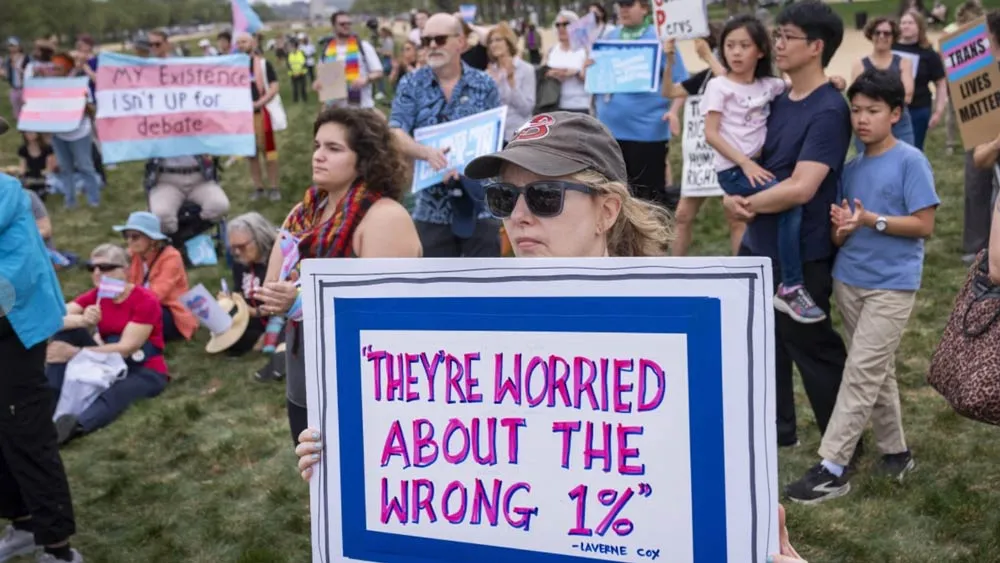November 6, 2012
Appeals Court Reviews Strict Arizona Abortion Ban
Jason St. Amand READ TIME: 3 MIN.
SAN FRANCISCO - A three-judge panel of the 9th U.S. Circuit Court of Appeal cast a skeptical eye Monday on the country's most-restrictive abortion law, which prohibits the procedure after 20 weeks of pregnancy unless there's a medical emergency.
Even Judge Andrew Kleinfeld, a reliably conservative jurist appointed to the appeals court by former President George H.W. Bush, said Arizona's law appears to wrongly prohibit abortions before "viability," when the fetus can live outside the womb. Viability is generally considered to occur sometime after 23 weeks of pregnancy. The county's seminal Supreme Court 1973 abortion ruling, Roe v. Wade, said states cannot prohibit abortions outright prior to viability.
Bill Montgomery, the Maricopa County attorney defending the Arizona law, said the ban was enacted to protect women from undergoing a risky medical procedure. Montgomery said it's too medically risky for a woman to undergo an abortion at 20 weeks unless there's a medical emergency.
"People decide to have dangerous, foolishly dangerous, medical procedures all the time," Kleinfeld countered. He said removing prostates and other risky procedures that may not be medically necessary occur often and are not prohibited. He said such medical decisions are left up to patients and doctors without government intrusion.
Montgomery and Arizona Solicitor General David Cole fared no better with the other two judges on the panel, Marsha Berzon and Mary Schroeder, especially when Montgomery mistakenly mixed up their names during his arguments. Berzon was appointed to the appeals court by President Bill Clinton. President Jimmy Carter appointed Schroeder.
Berzon agreed with Kleinfeld that patients make risky medical decisions daily.
"Are there any statutes against cosmetic surgery?" she asked rhetorically.
The court gave no indication when it would rule.
Arizona's Republican-led Legislature banned abortion after 20 weeks of pregnancy as part of a broader abortion law last spring. Three Arizona obstetrician-gynecologists, supported by the Center for Reproductive Rights and the American Civil Liberties Union, filed a federal lawsuit seeking to strike down the law.
U.S. District Judge James Teilborg, a Clinton appointee, upheld the law in July and it was to take effect on Aug. 2. But the appeals court blocked implementation until it issues its ruling.
Arizona is now among 10 states to enact versions of 20-week bans. Others are Alabama, Georgia, Idaho, Indiana, Kansas, Louisiana, Nebraska, North Carolina and Oklahoma. North Carolina's ban has been in effect for decades, while Nebraska was the first of the other states to enact its law, in 2010.
A challenge to Idaho's ban was scuttled early on, so Arizona's ban is the first to be tested in court. Arizona's ban is considered to be the most stringent because the starting point it uses to calculate a fetus's "probable gestational age" is about two weeks earlier than under the others states' versions.
In addition to arguing that abortions after 20 weeks of pregnancy are too risky for the mother, supporters of the law argue that fetuses can feel pain at 20 weeks. Critics dispute both points.
Critics also argue the ban could impose hardships on women with nonemergency health problems and fetal abnormalities that aren't discovered until after the ban takes hold.
Janet Crepps, the lawyer representing the three doctors seeking to invalidate the law, argued Monday that Arizona's ban "directly prohibits abortion prior to viability" and because of that "it cannot be saved."
Crepps said the definition of viability should be left up to doctors and not to a state arbitrarily "setting the line" at 20 weeks.
"The act is an undue burden on women seeking abortions," she said.





